Vi giver vores kandidater den nyeste viden om centrale begreber, teorier og metoder til at forstå vores nutidige globale problemer. Det gør vi ved at give vores studerende de nødvendige færdigheder sammen med et teoretisk og metodologisk værktøjssæt. Som kandidat i internationale studier vil du være klar til en karriere i det internationale arbejdsmiljø. Programmet omfatter kurser i det globale samfund, international politisk økonomi, moderne global historie, global tænkning, international projektledelse og global politik. Studerende bruger tredje semester til praktik eller studier i udlandet. Det sidste semester er dedikeret til at skrive en afhandling, hvor du viser din akademiske uafhængighed.
Undervisningen på International Studies varetages af fem kerneundervisere fra to fakulteter. Vores forskningsinteresser spænder over følgende områder: statskundskab, politisk sociologi, historie og idéhistorie, politisk økonomi og antropologi.
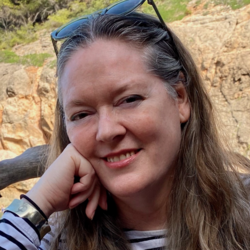
Academic Background:
My research in a nutshell:
Key areas: Social movements, political sociology, media and political communication, democracy
See my Google Scholar Profile!
What is your favorite place and why?
I have many favorite places. One of them is Granada in Spain. It is the result of many beautiful and rich cultures, (Moors, Romans, Jews and Christians). The food traditions are Arab-Andalucían with strong Arab and Jewish heritage. The Alhambra is spectacular and the setting is stunning with the Sierra Nevada mountains all around and the intense blue sky. I love the architecture, all the tea shops, and the feeling of proximity to North Africa. The hammam is really beautiful too and wandering through the Albaicín connects me to the past. Finally, in Granada they go crazy with the tapas, you can drink a soda or a glass of wine and get enough food to call it dinner. It is just a magical place.
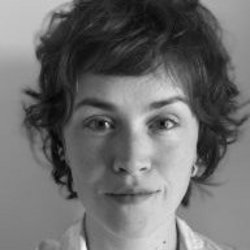

Academic Background:
My research in a nutshell:
In a nutshell, my research questions the often assumed environmental and social meaning of the concept of sustainability by asking the basic question of what this concept means in European Union policymaking. Through an international political economy lens, I investigate the political and economic norms, ideals and values that are embedded in the EU’s attempt to ‘mainstream’ or ‘integrate’ sustainability into different policy areas, such as ‘sustainable finance’. Methodologically, I use text analysis to interrogate official documents and I conduct interviews with civil servants to delineate how the sustainability narrative emerged and has evolved in the EU since the 1960s. The hope is that we can get a clearer picture of what to expect from future ‘sustainable Europe’ based on the current trajectory – in that sense my research certainly has a normative edge.
What is your favorite place the world and why?
In many ways I would tend to say that my favourite places in Europe are the ones that are the opposite of Denmark: Warm weather, diverse nature and mountainous landscapes where I can hike or cycle – even better if its within distance of a historic city, small enough to have a local feeling and large enough to have a good offering of modern food and coffee. One of my favourite cities in Europe is Valencia – an often-overlooked city with an interesting history, diverse neighborhoods, traditional and modern cuisine, and nicely located by the sea. And, of course, the home of a great Spanish football club.
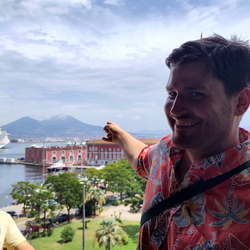
Academic Background:
BA in History and Religious study at AU, MA in Global History at AU
My research in a nutshell:
I am primarily interested in maritime history, with a focus on non-Eurocentric perspectives on global connectivity in the premodern era. My PhD project examines shipboard life on Indo-Arabic vessels in the Indian Ocean from 830 to 1680 AD. I draw on theories from critical cultural geography and new materialism to interpret the ship as a social, political, and multicultural space—as well as a dynamic and evolving process. The Indian Ocean provides a framework to explore global connectivity without centering European actors. I am particularly interested in how ships functioned as compressed, mobile microcosms reflecting the broader cultural and social landscapes of the regions they traversed. This approach allows me to investigate alternative maritime histories and the everyday lived experiences of seafarers beyond dominant historical narratives.
What is your secret talent?
I love building LEGO in my free time. I am not sure if that is a secret talent, but I like to think I am pretty good at it. People also say, that I read really fast – but that may also be to my detriment in some cases.
What is your favorite place in the world and why?
Aarhus, I was born and raised here, and it is still my favourite place I’ve been.
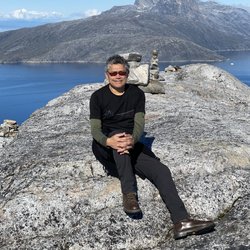
Academic background:
I did Asian Studies at Griffith University, Australia specializing in development studies. My honours thesis examined the emerging role of markets in centrally planned economies such as the PRC. For my PhD, my academic interests shifted to Latin America and for my thesis I looked at banking sector reforms in Central America during the 1980s and 1990s. My first post PhD job was at the University of the South Pacific in Fiji, where I conducted research on the interaction between microfinance and the subsistence economy. This line of research carried on when I took up a research position at the Foundation for Development Cooperation in Brisbane in 2008. My interest in the South Pacific continued but in a different setting. In, 2010 I accepted a position at the Center for Social Responsibility in Mining at the University of Queensland where I conducted research on the socio-economic impacts of mining projects. In 2012, I took up a position as senior social scientist with giant consulting firm Worley. After wreaking havoc in other parts of the world, the Global Financial Crisis finally arrived in Australia and the company lost many contracts in a matter of months, which resulted in a redundancy for many, including me. I dedicated the next 18 months to taking care of my 2 daughters and wife: cooking, cleaning, changing diapers, washing clothes, taking kids to kindergarten and school, entertaining them after school and organising the home front while my wife worked full time. Being a stay-at-home dad is the most difficult job I've had so I salute all those who do it. In 2014, I moved to Denmark with my whole family to start my current position. You can visit the PURE page to find out more about my professional self.
My research in a nutshell:
I specialize in the governance of natural resources. I also look at the socio-economic impacts of non-renewable resource extraction in Latin America, the South Pacific and Greenland. My most recent project deals with finding economic alternatives for rural communities in El Salvador.
If you would not be a researcher, what do you think would be your profession today and why?
It is difficult for me to think of any other profession, other than being a researcher but I do have another passion: cooking! I love cooking for myself and others because I get into a very good mood almost every time I cook. My favourite is food from Southeast Asia, but I also like cooking my own version of Indian, Latin American and Italian food. I'm a vegetarian so finding interesting vegetarian recipes from around the world is one of my favourite past times. If one day, I get tired of being a researcher, I think I may buy a food truck and start selling my dishes to people.
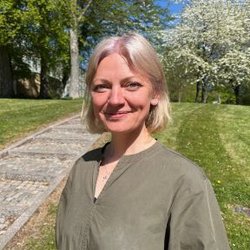
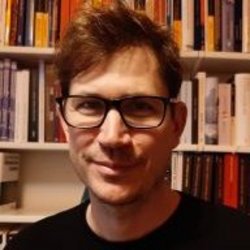
Academic Background:
I did my MA studies in History, Philosophy and English, at the Free University in Berlin and have a Master of Modern European History from St. Antony’s College at the University of Oxford. My PhD is from the European University Institute in Florence and was a trilingual, transnational analysis of constructions of national identity and ‘imagined authenticity’ in travel writings. After the PhD I spent several years in different kinds of research positions both in academia but also in NGOs and public institutions. In 2007 I became Assistant Professor in International History at Aarhus University and since 2010 I have been Associate Professor for Global and European History. I am also the coordinator of the MA in International Studies.
My research in a nutshell:
My research focuses on global conceptual history as well as European and global history. Recently, I have been interested in applying a global conceptual historical approach to the study of neoliberalism. I have analyzed the thoughts and concepts of early neoliberals, focusing on how they sought to reconstruct liberalism in the crises of the First World War, the Great Depression, and the Second World War. This has led me to study global networks of intellectuals during this period, including around the League of Nations. Following up on the insights gained from this, my latest research project Global Governance Beyond Neoliberalism, looked more at our current moment and possible futures. Through a round of seminars focusing on different concepts and themes of global governance, the project sought to ask questions about where global governance is at now, and where it is heading.
Who is your favorite neoliberal thinker and why?
That would clearly be Jacques Rueff. And he is so, because he is one of the most influential intellectuals and policymakers but probably also one of the most unknown and unrecognized. It’s not that I like everything he says, but he is my favorite. He was simply everywhere.